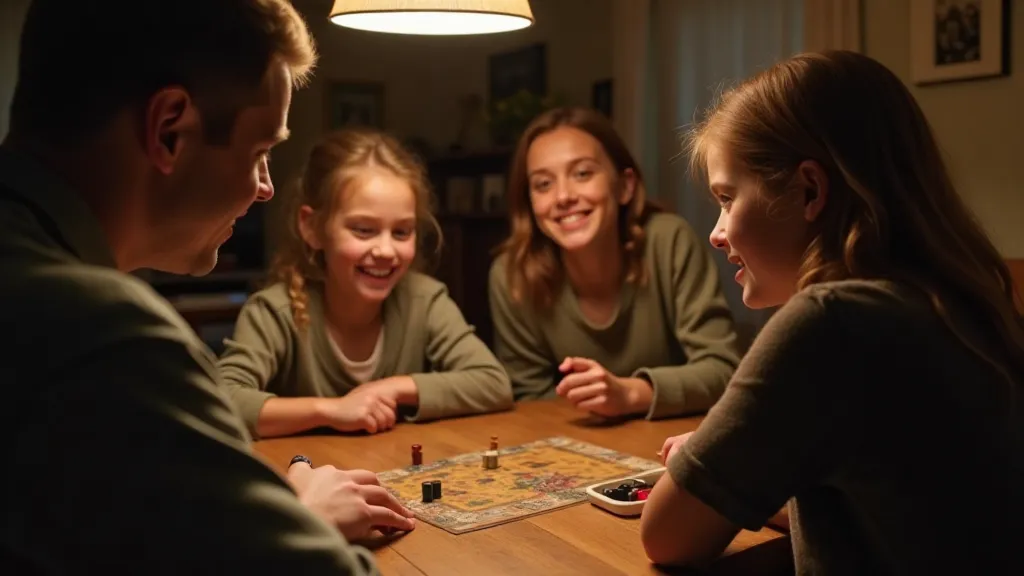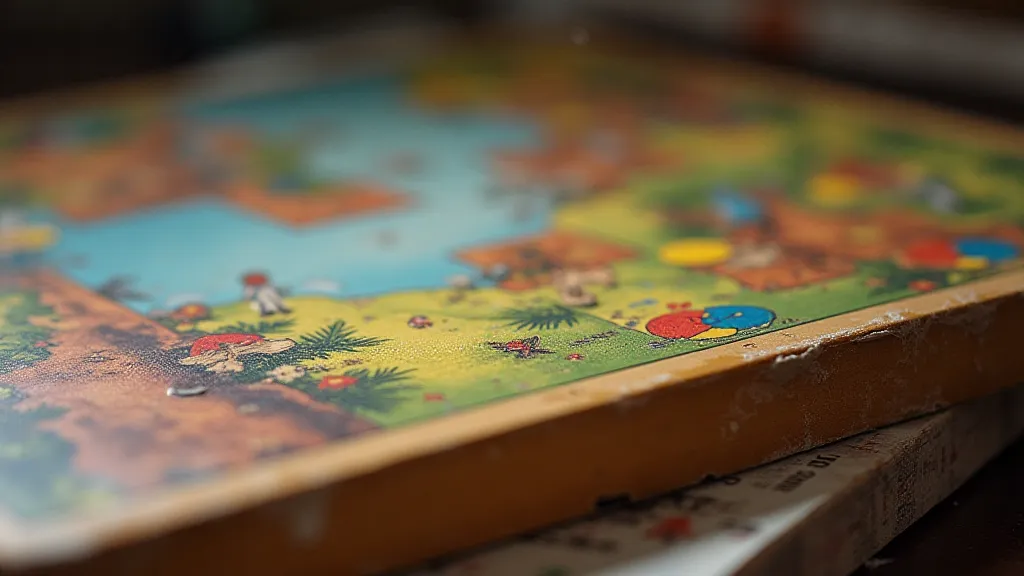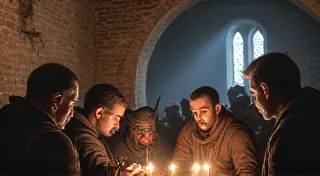The Silent Auction of Shared Experience: A Treatise on Value in Family Tabletop Games
There's a quiet dignity to antique accordions. Their bellows, often cracked and faded, whisper stories of traveling musicians, joyous celebrations, and countless hours of patient practice. Holding one, feeling the weight of the wood and metal, evokes a sense of connection to a past filled with music, laughter, and the shared humanity that transcends generations. Similarly, a truly valuable family tabletop game isn's about the cost listed on a box; it's about the memories it unlocks, the bonds it strengthens, and the echoes of shared laughter it leaves behind.
We tend to quantify value. A car’s worth, a house's price, a computer’s specifications – all easily expressed in numbers. But the value of an experience, particularly one shared within a family, is inherently more nebulous. It exists in the spaces between the rules, in the unspoken glances, in the triumphant shouts and the comforting pats on the back after a particularly challenging round. It's a silent auction of shared experience, where the bids aren’t measured in dollars, but in laughter, frustration, and ultimately, connection.

The Craftsmanship of Connection: Design Choices and Family Dynamics
Consider the design choices made in a game's creation. Simplicity versus complexity, a whimsical theme versus a tense strategic challenge – these aren't merely aesthetic decisions; they are levers that can influence a family's dynamic. A game too complex can create frustration and disengagement, especially with younger children or those less inclined towards strategic thinking. Conversely, a game so simple it offers no intellectual stimulation can quickly become tiresome. The sweet spot lies in finding a game that’s challenging enough to engage, yet accessible enough to avoid overwhelming. Often, finding that perfect balance is key to a truly memorable game night – perhaps even something akin to the rewarding feeling of restoring an antique accordion.
Theme plays a crucial role as well. A pirate adventure can ignite a child's imagination, a fantastical realm can foster creativity, and even a seemingly mundane subject like farming can offer a surprising amount of learning and engagement. But a theme only resonates if the mechanics support it. A beautiful, evocative theme paired with clunky, illogical gameplay will quickly lose its charm. For many families, the goal is finding that perfect blend of engaging theme and accessible rules – a principle that feels almost universal, much like the enduring appeal of a well-loved game. Sometimes, diving into the top 5 family board games can spark inspiration for your next game night.
Player agency, the feeling that one's decisions truly matter, is another critical element. Games with limited choice can feel restrictive and unrewarding. The ability to influence the outcome, to feel in control of one's destiny (even in a fictional context), fosters a sense of investment and encourages repeat play. Selecting the right game for your family can be overwhelming; a quick glance at resources showcasing exemplary family board games might offer some inspiration.
Beyond the Rules: The Psychological Landscape of the Tabletop
The true value of a family board game isn't found within the rulebook; it’s in the psychological landscape created around the tabletop. It’s a space where vulnerability is accepted, where mistakes are learning opportunities, and where celebrating each other's successes is just as important as achieving victory. A game that encourages cooperation rather than ruthless competition can cultivate empathy and teamwork – invaluable life lessons disguised as entertainment.
I remember my grandfather, a quiet and often reserved man, truly coming alive during our weekly game of backgammon. He wasn’t a demonstrative person, but the subtle shifts in his expression – a flicker of concentration, a suppressed grin, a sigh of resignation – were more telling than any words could have been. The game wasn’t just about winning or losing; it was a window into his personality, a chance to connect with him in a way that transcended the usual formalities. This is the power of tabletop gaming: the creation of shared experiences that build bridges and deepen understanding. The meticulous restoration of a cherished game, much like an antique accordion, can be a beautiful process of rediscovering a shared past.
Restoring antique accordions is a labor of love, a meticulous process of cleaning, repairing, and preserving a piece of history. The cracked bellows are painstakingly mended, the worn keys are carefully lubricated, and the faded finish is lovingly restored. The goal isn't to return the accordion to pristine condition; it's to honor its past, to preserve its character, and to breathe new life into a cherished artifact. Similarly, the most enduring family board games aren't those that are perfect; they're those that have been weathered by time, marked by laughter and tears, and imbued with the echoes of shared memories. The thoughtful placement of tiles, for example, as seen in a game like Azul, requires a similar blend of patience and artistry.

The Legacy of Connection: Exploring 'Legacy' Games
The rise of “legacy” games – games that evolve and change permanently with each play, leaving indelible marks on the game board and impacting future gameplay – is fascinating in this context. These games, with their unfolding narratives and customizable elements, tap into a deep-seated desire for permanence and shared authorship. Each family becomes a co-creator of the game's history, building upon the choices made by previous generations.
However, the permanence of legacy games also presents potential challenges. A poorly made choice that has lasting consequences can become a source of regret or tension. The pressure to “get it right” can overshadow the joy of playing. The delicate balance between shared responsibility and individual agency becomes even more critical. It is a testament to how emotionally invested families can become in these shared experiences. Like the careful consideration needed to maintain a treasured antique, legacy games demand a delicate balance between preservation and progress. The very nature of these games encourages a sense of collaborative storytelling, building upon past decisions to shape a unique narrative—a dynamic surprisingly reminiscent of restoring a beloved antique accordion.
Beyond the Price Tag: The Enduring Value
Collecting antique accordions, like collecting cherished family games, isn’t about acquiring objects; it’s about safeguarding stories. Each instrument has a past, a history of music and laughter, a connection to a community of musicians. They are more than just instruments; they are vessels of memory, repositories of cultural heritage. And like those cherished family games, they offer a tangible link to a past filled with shared experiences and enduring connections. Even a seemingly simple game, if played repeatedly and with genuine enthusiasm, can become a treasured heirloom. The feeling of nostalgia and shared history resonates deeply—a sentiment often evoked by the enduring appeal of both antique instruments and family games.

The Narrative and the Rules: More Than Just Mechanics
It's easy to get bogged down in the mechanics of a game - the rules, the scoring, the strategic options. However, the true magic often lies in the narrative, the story that unfolds as players interact with the game. A compelling narrative can transform a simple collection of rules into a rich and immersive experience, fostering deeper engagement and creating lasting memories. Consider how even a game designed around simple tile-laying, like Azul, can evoke a feeling of artistry and beauty through its mechanics and aesthetics. The artistic design, intricate gameplay, and collaborative spirit—all contribute to an experience far richer than the sum of its parts, much like the satisfying feeling of seeing a meticulously restored antique accordion once again play a beautiful melody.
The Importance of Shared Rituals
Beyond the games themselves, the ritual of game night is often as important as the game being played. The anticipation of gathering together, the shared snacks and drinks, the laughter and friendly competition – these are the elements that create lasting memories. Just as families often have unique traditions associated with holidays or special occasions, game nights can become cherished rituals that mark the passage of time and strengthen family bonds. The careful attention given to a family board game—the special storage box, the carefully preserved rulebooks—reflects the value placed on this ritual and the memories it creates.
The Enduring Value of Connection
Ultimately, the true value of a family tabletop game lies not in its price tag, but in the memories it creates, the bonds it strengthens, and the legacy it leaves behind. It’s a silent auction of shared experience, where the bids aren’t measured in dollars, but in laughter, frustration, and ultimately, connection. It is in those quiet moments of shared laughter and genuine connection that the true magic of tabletop gaming reveals itself, creating memories that will endure long after the game box is put away. These moments are as valuable and enduring as the stories whispered by an antique accordion—a testament to the power of shared experiences and human connection.





